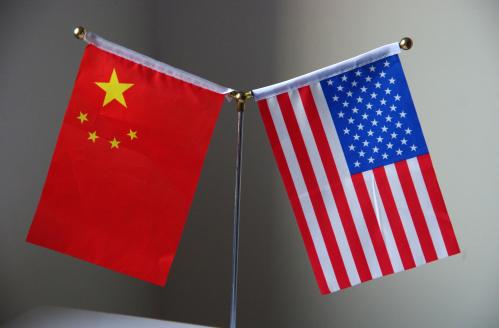Trade disputes roil Rwanda-Burundi and Zimbabwe-South Africa relations
On Wednesday, August 8, the East African Legislative Assembly (EALA) announced it would be launching its own investigation into the rising trade dispute between Rwanda and Burundi, which came to a head two weeks ago as Burundi announced a full ban on Rwandan products. In addition, on Thursday Burundi decided to restrict movement of people across the border. According to the Chinese news agency Xinhua, passenger buses have been prevented from crossing it. Relations have soured between the two east African countries over Burundi’s accusations that Rwanda supported the agents of the May 13, 2015 coup aiming to unseat President Pierre Nkurunziza. EALA Senate President Bernard Makuza already has emphasized that Burundi’s actions will likely not be tolerated, stating, “We have already expressed our concerns that ban on cross-border trade is by all means a serious breach and violates the [East African Community] protocols.”
So far, Rwanda’s minister for trade and industry, Francois Kanimba, has stated that the ban would likely not harm the Rwandan economy given the availability of the items usually imported from Burundi, including mangoes, oranges, dried silver fish, and palm oil. Burundian farmers have already criticized the ban, citing dropping food prices and crops going to waste.
In other trade news, on Sunday South Africa gave Zimbabwe three weeks to lessen its import ban enacted in June. (Zimbabwe has imposed the ban on Zambia as well.) Zimbabwe has justified the import ban, stating it was enacted “not only to reduce imports in the wake of cash shortages, but also to stimulate local industry.” So far, South Africa, Zimbabwe’s biggest trade partner, has demanded reduced surtaxes on 112 products. South Africa Trade Minister Robert Davies has also expressed his displeasure at Zimbabwe’s circumvention of Southern African Development Community (SADC) trade protocols. Pretoria and Harare have until August 24 to resolve the dispute before the scheduled SADC trade minister meeting in Botswana.
Ethiopia experiences violent protests over land rights
Last week, a new wave of anti-government protests rocked the Ethiopian capital, Addis Ababa, and other parts of the Oromia region. The protests originally started in November 2015, when the Ethiopian government issued a proposal to extend the municipal boundaries of Addis Ababa further into the Oromia Region. The expansion would take away farm land in the region, jeopardizing the livelihoods of several farmers. Originally stemming from boundary disputes, the protests have now turned into country-wide anti-government protests, which have taken the lives of more than 400 people over the course of nine months. According to Quartz Africa, the protests have united Ethiopia’s two major ethnic groups, the Amhara and Oromo people, who make up 61 percent of the population and feel marginalized by the ruling elite, dominated by the Tigrayan ethnic group, who make up only 6 percent of the population.
The plan to extend the legal borders of Addis Ababa was abandoned in January. Still, several opposition demonstrators remain detained so protestors are continuing to ask for their release. Last weekend, the protests took place in spite of the government’s decision to block social media.
Ethiopian security forces have been accused of perpetrating violence against demonstrators and members of the opposition. The death toll from this weekend’s violence ranges from 50 (a number provided by an opposition leader) to 90 (an Amnesty International estimate) people. In response, the government labelled the demonstrations “illegal protests” by “anti-peace forces” and have not disclosed the casualties resulting from the demonstrations. Wednesday, the United Nation urged the Ethiopian government to allow international observers to investigate the killings of protesters, an offer the Ethiopian government rejected on Thursday.
Zambia holds elections as economy experiences shocks
On Thursday, August 11, Zambia held its general elections, which pitted President Edgar Lungu of the ruling Patriotic Front party against businessman Hakainde Hichilema of the United Party for National Development in the presidential race. Despite some electoral violence in the run-up to the elections, the day of the vote was calm and orderly. A new rule was implemented during this election so that a presidential candidate must win an absolute majority (50 percent or more of the vote) in order to win in the first round and avoid a second round run-off. Candidate’s also selected running mates for the first time to prevent a presidential by-election—an election organized following the death of a president in office—which has occurred twice in the past decade. Given the country’s recent shocks to its economy—including the drop in copper prices (its main export), the closing of mines, a dramatic rise in unemployment, and slowing of GDP growth—the election’s outcomes may reflect voters’ perceptions of the ruling party’s ability to manage these ongoing economic challenges.
In other news, Sao Tome and Principe’s July 17 elections concluded with a surprising outcome as incumbent President Manuel Pinto da Costa boycotted the second round vote, alleging fraud in the first round. His withdrawal paved the way for his opponent former Prime Minister Evaristo Carvalho‘s victory, after Carvalho won in the first round with 49.8 percent of the vote to President Pinto da Costa’s 24.8 percent.




Commentary
Africa in the news: East and Southern African trade issues, Ethiopia’s land reform protests, and Zambia’s general elections
August 12, 2016